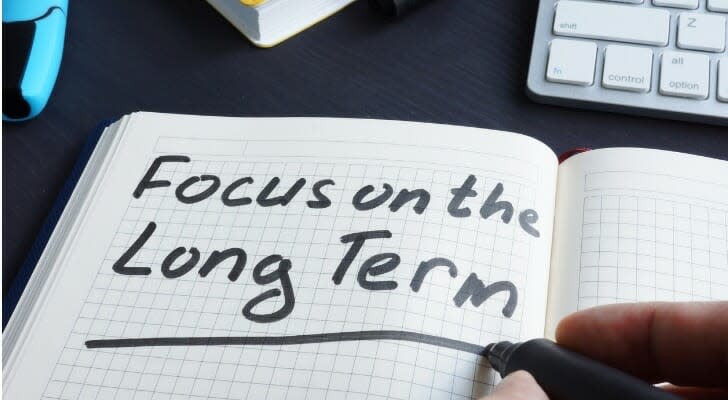If you’re approaching retirement age, you have a lot to think about. Focusing on limiting your tax liability can be especially valuable. After all, the more taxes you pay in retirement, the less money you’ll have to live off. If you’re looking to improve your retirement situation, here are some strategies for reducing how much tax you pay in your golden years. A financial advisor can also help with your tax strategy and plan for retirement.
Remember to Withdraw Your Money From Your Retirement Accounts
It might seem unlikely that you would forget, but you do need to start withdrawing money from traditional 401(k)s and IRAs by the time you’re 73 years old. These mandatory withdrawals, known as required minimum distributions (RMDs), previously took effect at age 72. However, the RMD age increased by one year for people turning 73 in 2023 under the SECURE Act 2.0, which President Biden signed in late 2022.
RMDs must be taken by April 1 of the year following the calendar year in which you turn 73. (If you still are working after age 73 and don’t own more than 5% of the company you work for, you’re allowed to hold off withdrawing from your 401(k) until you retire but not your IRA.) Starting in 2033, RMDs will begin at age 75.
If you don’t withdraw the minimum distribution by the deadline, you’ll pay a 25% penalty on the amount that should have been withdrawn – and pay the income tax that is due on the withdrawal. So withdrawing your money in a timely manner is an easy way to reduce your tax liability in retirement.
Understand Your Tax Bracket
There is a reason for the expression that nothing is certain but death and taxes. If you’re retired, there is a good chance you’ll be paying taxes.Your Social Security benefits may be taxable if one-half of your benefits plus all of your other income, including tax-exempt interest, exceeds the base amount for your filing status, as set by the IRS:
$25,000 if you’re single, the head of a household, or a qualifying surviving spouse
$25,000 if you’re married filing separately and lived apart from your spouse for the entire year
$32,000 if you’re married filing jointly
$0 if you’re married filing separately and lived with your spouse at any time during the tax year
The more money you report to the IRS per year, the higher your tax bracket. This can be helpful to remember if you’re withdrawing money from an IRA, 401(k) or a pension. If you’re on the edge of a tax bracket, you may want to withdraw a little less from your taxable accounts to remain in a lower tax bracket and reduce your tax bill. If you have a Roth IRA account, the withdrawals are tax free.
Make Withdrawals Before You Need To
Some personal finance experts suggest taking smaller distributions from your retirement accounts during your 60s. Doing so can spread your tax liability over more years, keeping you in a lower tax bracket and reducing your tax bill over your lifetime. You ideally would take the withdrawals during a year in which your income is lower, anyway. For instance, if you’ve retired but haven’t started taking Social Security, that’s considered an ideal time to make withdrawals from retirement accounts.
Invest in Tax-Free Bonds
Many retirees have diversified portfolios that may includebonds because they are considered to be virtually no-risk investments. You can generally invest in federal bonds and not pay state or local taxes on them (although you’ll have to report the income when you file your federal taxes). Likewise, if you purchase state or municipal bonds, usually you won’t have to pay state or city taxes on the profits.
Invest for the Long-Term, Not the Short-term
This is something to consider whether you’re trying to reduce your tax liability in retirement or before it.If you sell an asset– like a stock, mutual fund or even a piece of art – you’ll owe a capital gains taxon the profit. How much tax you pay depends on when you initially bought the asset. If you owned the asset for more than a year, the IRS will tax the profit at the more favorable long-term capital gain tax rate. If you sell the asset within a year of purchasing it, the sale is considered a short-term capital gain and gets taxed as ordinary income.
For short-term capital gains, you might pay as much as 37% in 2023, depending on your tax bracket. If you hold off and sell the asset after a year’s time, you’ll be taxed at 0%, 15% or 20%, depending on the level of your income.
Move to a Tax-Friendly State
Some states are considered to be more tax-friendly than others, making them attractive to retirees. Alaska, Montana, Oregon, New Hampshire and Delaware, for instance, do not have sales tax.
While some states are known for low property taxes, these nine state don’t collect personalincome tax:
Alaska
Florida
Nevada
New Hampshire
South Dakota
Tennessee
Texas
Washington
Wyoming
Then again, state laws can always change. If you love the state you live in and your family is nearby, moving to a state that collects lower taxes may not make much sense. In fact, if you move simply to escape paying higher taxes, the cost of frequent trips to visit your family in another state could negate the savings of living in a low-tax state.
Bottom Line
When you’re retired, you will hopefully have investments generating income for you. However, it’s important to think about how to best preserve that income and lower your tax liability. By thinking carefully about taxes in retirement and making some shrewd decisions, you should have more money in your pockets and more breathing room so you can truly enjoy retirement.
Tips for Being More Tax-Efficient
Philanthropic retirees who give to charity every year may consider making qualified charitable distributions (QCDs). These payments, which come directly from your IRA, are sent to qualified charities. While they can satisfy your RMD responsibility, the QCD isn’t considered part of your taxable income and can limit your tax liability.
Harvesting the losses in your portfolio can help lower your capital gains tax bill and keep more of your profits. Use our Capital Gains Tax Calculator to get a sense of how much you may owe when selling an investment.
Need help managing your investments and optimizing your tax strategy? A financial advisor can help. Finding a financial advisor doesn’t have to be hard. SmartAsset’s free tool matches you with up to three vetted financial advisors who serve your area, and you can interview your advisor matches at no cost to decide which one is right for you. If you’re ready to find an advisor who can help you achieve your financial goals, get started now.
Photo credit: ©iStock.com/kate_sept2004,©iStock.com/coldsnowstorm, ©iStock.com/designer491
The post 5 Ways to Reduce Tax Liability in Retirement appeared first on SmartAsset Blog.


